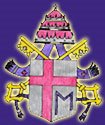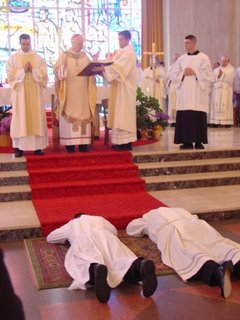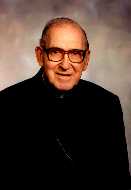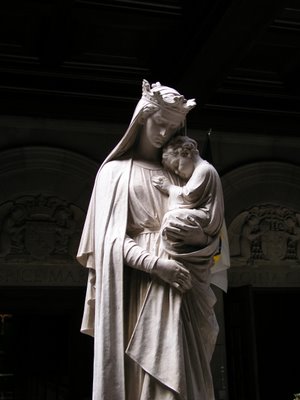Ovid, an early first-century Roman poet, paints a beautiful picture of the contrast between animals and man. It is a simple statement but rich with meaning: “And, though all other animals are prone, and fix their gaze upon the earth, he gave to man an uplifted face and bade him stand erect and turn his eyes to heaven.”[1] The beauty of this statement is that despite its simplicity it prompts us to naturally ask, “Why?” Why does man stand erect while the animals are prone? What does his posture illustrate about him? Why is his face uplifted? What in the heavens captures his gaze? What can he see and do now with this posture that he could not see and do before? What is the reason for this human phenomenon and why is it his? Is this good for man?
It does not take a zoologist, a biologist, an anthropologist, or other scientist to ask these questions, we can expect them from anyone. And if the common man can ask them, should not the scientist who has a more astute curiosity be all the more able to? We would think so. But, a careful look at modern science reveals a glaring inability to ask the most natural questions of the phenomena we encounter in the world.
Rather than ask the above, modern science would ask, “How is it that man stands erect? Is it the strength of his hind legs? How does he hold up his head? Is it the ligaments in his neck? How does he fix his gaze? Is psychology at play? Is he daydreaming? How does his brain create his state of daydreaming?
Here, Dr. Leon R. Kass, M.D., former chairman of the President’s Council on Bioethics, draws the appropriate conclusion in his book, The Hungry Soul.[2] What is revealed in Ovid’s statement and “other such simple natural facts, accessible to us through the testimony of our own lived experience, can provide a royal road to appreciating what we are and discovering what we might become.” But, unfortunately, he goes on to say, “we have lost our way in the world partly because we no longer believe that our ordinary experience of life in the world may be the privileged road to the deepest truth.”[3]
The questions we noted above, those of modern science, presuppose a view of nature, what Kass would call nature as “blind, mechanical, mindless, and aimless.” But isn’t the scientific community a rather elite group, small in number compared to the total population? Why should we be concerned with this dilemma? Kass would reply that while most of us are not scientists,
virtually all of us in the present age are at least cryptoscientists and fellow travelers [with modern science]. We are rationalists… and we do not stand respectfully before our living bodies. We readily accept biochemical “explanations” of human [phenomena]… We may not see with a scientific eye, but we think – often unwittingly – with scientific concepts and explanations.[4]In this essay we will take a brief look at David Hume, a philosopher that has influenced modern science and in turn the common man as described above. We will do this so that we can better understand where we stand today. All the while we will compare and contrast his thought with that of Leon Kass so that we can look forward and up and ask the right questions.
First, what is phenomena? The word itself is the plural form of the word “phenomenon” which is derived from the Greek “phainomenon,” literally meaning something that can be seen, or an appearance.[5] For our purposes, the phenomena, or the appearances of nature, on which a philosopher chooses to focus can be very revealing. While Aristotle and St. Thomas Aquinas, for example, chose to focus on “plants and animals; the heavens; living kinds; substantial and accidental change or generation and corruption,” Hume turned to “the pain of excessive heat, the pleasure of moderate warmth;” anger, inertia, billiard balls, and weighted figures in motion.[6] He chose too look at “earth, water, and other elements” rather than living organisms. The ordinary natural wholes that we experience and encounter every day are absent from Hume’s phenomenology. And when we look at his popular work, An Enquiry Concerning Human Understanding,[7] we see that this is quite deliberate and in fact a strategic move in his ideology for science.[8] We will look at this ideology later, for now, we have come to our first contrast with Kass.
Kass’s book, The Hungry Soul, follows in Aristotle and Aquinas’ footsteps and is about “deeper desires, appetites, and longings as they reveal themselves in human eating.” Furthermore, eating, “like other activities in which human beings and animals engage, is an activity of whole, unified, formed, living, active, sensitive, and desiring beings.”[9] But Hume, in a similar example in An Enquiry, is skeptical of man’s ability to learn anything from this phenomena concerning its motivations or meaning: “Our senses inform us of the colour, weight, and consistence of bread; but neither sense nor reason can ever inform us of those qualities, which fit it for the nourishment and support of a human body” He even goes on to say that “nature throws a bar to all our enquiries concerning causes, and reduces us to an acknowledgment of our ignorance.”[10]
Aristotle and Aquinas (and now Kass) observed the phenomena in their everyday world and allowed them to naturally disclose their meaning and purpose. They then, through metaphysics, moved from the phenomena to a study of the principles and causes that animate them. From these they discovered both the superficial and underlying truth of the phenomenal forms they beheld. But Hume, and much of modern science today, has no use for the metaphysical causes of the phenomena they study. The truth they seek is, again, in the question “How?” not in the questions “What?” or “Why?” They reject the latter questions as being the mere “inevitable source of uncertainty and error.” To Hume classical metaphysics is not “properly a science” and arises either from “the fruitless efforts of human vanity, which would penetrate into subjects utterly inaccessible to the understanding, or from the craft of popular superstitions, which… raise these entangling brambles to cover and protect their weakness.”[11]
To this end, Hume moves the focus away from the observable natural phenomena to the inner-workings of the mind of the observer. Therein lays the truth of what he sees. In making this move he seeks to liberate modern science from the “obscurity, painfulness and fatigue” of classical metaphysics and here we see his ideology. Only in the “secret springs and principles by which the human mind is actuated in its operations” do we really find clarity:
Astronomers had long contented themselves with proving, from the phenomena, the true motions, order, and magnitude of the heavenly bodies: Till a philosopher, at last, arose, who seems, from the happiest reasoning, to have also determined the laws and forces, by which the revolutions of the planets are governed and directed. The like has been performed with regard to other parts of nature. And there is no reason to despair of equal success in our enquiries concerning the mental powers and economy, if prosecuted with equal capacity and caution.[12]So the movements of these heavenly bodies, and ultimately the result of any observable phenomena, is not an exhibition of meaning or purpose but a string of laws and forces, clearly and precisely executed, as if all phenomena were simply a cosmic game of Billiards in which one ball strikes another which strikes another ad infinitum. This dynamic leaves no room for substantial forms.
Our last contrast with Kass will be one concerning connections. We return now to the phenomenon of human eating. Kass observes in the Introduction to The Hungry Soul that the world is arranged so as to contain “deep connections among human eating, human freedom, and human moral self-consciousness. It is these connections that we here seek to discover. We, too, seek wisdom through eating; eating is the manifest theme of this inquiry.”[13] With Kass, we see an inquiry that is motivated by a desire to discover deep meaning in the phenomenon he has chosen to explore. But the main point here is that there are real, fertile connections between phenomena on one hand and meaning, purpose, truth, goodness, beauty and the “just, noble, and holy” on the other. And similar connections, also disclosed by phenomena, can even be found between nature and ethics. But, Kass adds,
modern thought has come to teach the uselessness of natural knowledge for ethics… Eventually even the possibility of truth [comes] under challenge, with various skepticisms asserting the ultimate unknowability of both the true being of nature and the true causes of natural phenomena.[14]Hence Hume, again regarding non-organic phenomenon and ambiguous “objects”:
When we look about us towards external objects, and consider the operation of causes, we are never able, in a single instance, to discover any power or necessary connexion [sic]… The scenes of the universe are continually shifting, and one object follows another in an uninterrupted succession; but the power or force, which actuates the whole machine, is entirely concealed from us, and never discovers itself in any of the sensible qualities of body. We know, that, in fact, heat is a constant attendant of flame; but what is the connexion [sic] between them, we have no room so much as to conjecture or imagine.[15]It would be easy for us to become discouraged and confused in this seeming war over meaning in science. But, from what we have seen above, it is imperative that we follow the lead of Leon Kass and other post-modern thinkers like him. We must “reconsider the now-dominant scientific view in search of a more natural and richer biology and anthropology.”[16]
If we are successful, perhaps we can even show that nature is not altogether silent about, or irrelevant for thinking about, how we should live… nature rightly understood might turn out to be a suggestive teacher. Nature might yield a pointing-toward, a hinting-at, a promising-forth of a wholesome direction, a propitious attitude, a dignified and fulfilling posture for our lives. Nature, and even natural necessity, might yet point the way to virtue.[17]
[1] Metamorphoses (1.84-86) from Kass, p. 57 (see note 2)
[2] The Hungry Soul: Eating and the Perfecting of Our Nature, by Leon R. Kass, M.D., The University of Chicago Press, ©1999. Hereafter referred to as “Kass”
[3] Ibid, p. xv, 8
[4] Ibid, p. 7
[5] Also from neuter present participle of phainesthai, to appear. (The American Heritage® Dictionary of the English Language, Fourth Edition Copyright © 2004, 2000 by Houghton Mifflin Company)
[6] From the document “David Hume’s an Enquiry concerning Human Understanding,” David Hume I.doc, 3/25/2006, by Dr. Paul Seaton
[7] An Enquiry Concerning Human Understanding, second edition, edited by Eric Steinberg, Hackett Publishing Company, ©1993. Hereafter referred to as “Hume”.
[8] Idea from Dr. Paul Seaton given in conversation, 5/3/2006
[9] Kass, p. xiii, emphasis mine, and p. 11
[10] Hume, p. 21, 40
[11] Ibid, p. 5
[12] This train of thought from the Hume document noted above (note 6) and Hume, p. 8
[13] Kass, p. 1
[14] Ibid, p. 4-5
[15] Hume, p. 41-42
[16] Kass, p. 9
[17] Ibid, p. 12







